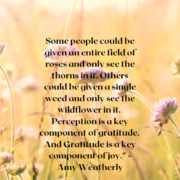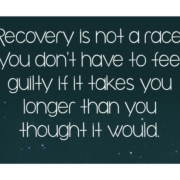Writing the Story of Your Life
Written By: Elena Ames
Have you seen vegetables or objects that mimic human emotions?
Most likely, among the abstract, strange and simply inappropriate photographs, faces catch your eye. Some of them are sad, some are funny, and some express sincere surprise. This phenomenon is known as apophenia, where our minds create connections between unrelated things, filling the world with meaning. In essence, we look at reality, but we see ourselves reflected in it. Just as we interpret photographs, we also interpret the events of our own lives. However, it is not the individual facts or events that truly matter, rather, it is the connections we perceive between them. The stories we tell ourselves about our lives can shape our outlook, and it is up to us to become the storytellers and authors of our own narratives.
Let’s talk about the Kuleshov Effect. In the realm of cinematography, there is a technique called the Kuleshov Effect. This technique demonstrates that the sequence and apparent connection between events often carry more weight than the events themselves. It suggests that viewers attribute emotions to characters based on what they have observed before. Directors consider this effect more important than acting itself, as it demonstrates the power of perception in shaping our understanding and emotional response. Why don’t you take a look at This Example and try to catch yourself on different emotions you create. Interesting, right? Think of modern news storytelling.
The Illusion of Storytelling in Life? Life mirrors this cinematic phenomenon. We look back at past events and construct causal relationships, weaving a story of our lives based on our feelings, intuitions, and interpretations. These stories we tell ourselves are often well-written, coherent, and logical. However, they can also be illusory, leading us down paths of self-limitation or empowering us to embrace our potential. For example, if we convince ourselves that a physical feature is preventing us from finding love, we may attribute subsequent failures in relationships to that feature, despite its absurdity. Our tendency to create narratives is inherent, and just like the faces we perceive in abstract images, these tales can be both amusing and convincing.
Let’s chat about this power of perception. Every event in our lives has the potential to generate fundamentally different stories. One interpretation may be burdened with heaviness, fear, and loneliness, while another can uplift, inspire, and liberate us. The remarkable aspect is that only we have the ability to write these stories. It is essential to recognize that every event, whether positive or negative, can be considered stressful. Stress, defined as pressure, manifests in various forms and impacts our bodies. For instance, both the emotions of grief and romantic euphoria exert equal pressure on the body, necessitating the production of different hormones to achieve equilibrium. It is important to acknowledge that this pressure constitutes stress. Stress itself represents the body’s response to a changing environment and is nothing more or less than our own adaptation to such changes. It can manifest as distress or eustress. Consider the example of studying for an exam, which induces distress, and the subsequent sense of eustress upon successfully passing it. Both forms of stress are essential for personal growth. Learning and growth go hand in hand, and in order to learn, we must embrace change. Every change, whether positive or negative, elicits stress as a natural response. Read more about stress HERE – fascinating!
Well then! How would you become the author of your life? Instead of passively accepting the world’s apparent form and others’ narratives about us, we must take on the role of storyteller in our own lives. The world and life itself pose questions and challenges to us, demanding our responses. Living means being interrogated by events and circumstances. Thus, instead of merely accepting interpretations, we should actively intervene and shape our own understanding of the purpose of life. Suffering or joy, victory or defeat, triumph or failure – everything becomes part of an inspiring story, a recipe for our lives. The power to write this story lies solely in our hands.
Writing Your Story. I invite you to write the story of your life – a narrative that elevates you beyond your limitations, placing you at the center of the human spirit’s vibrant energy. Craft a story that inspires even the most desperate person to embark on glorious deeds. Let each setback in your story contribute to the grand tapestry of fundamental joy. Although this narrative may be illusory, its curious eyes and cheerful smile will inspire you to live it to the fullest. As you experience it, let your story become one you are eager to share with others, encouraging them to embrace the power of perception and the limitless potential within their own lives.
So! Our lives are not merely a collection of facts and events, but a series of connections and interpretations. We possess the incredible capacity to shape the stories we tell ourselves, ultimately influencing our perception of the world and our place within it. Just as the Kuleshov Effect demonstrates the power of sequence and connection in cinema, we must recognize the importance of our interpretations and narratives in our own lives. By actively intervening in the interpretation of events, we can create stories that elevate, inspire, and empower us.
Embrace the power of perception, write your own story, and discover the remarkable joy and fulfillment that lie within your hands.











Leave a Reply
Want to join the discussion?Feel free to contribute!